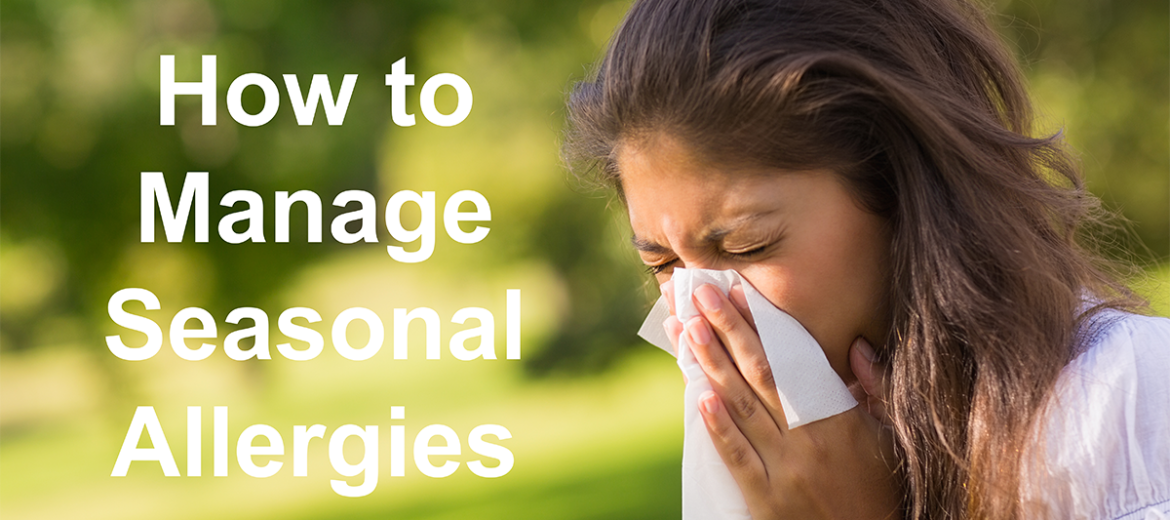Spring brings flowering blossoms and blooming trees — and if you’re one of the millions of people who suffer from seasonal allergies, it also means sneezing, congestion, a runny nose and other annoying symptoms.
Seasonal allergies — also called hay fever and allergic rhinitis — can make you miserable. However, there are some things that can make the season a little easier on those who are affected.
Here are a few methods to help you make it through allergy season:
1. Star by Reducing Your Triggers
To reduce your exposure to the things that trigger your symptoms:
- Stay indoors on dry, windy days. The best time to go outside is after a good rain, which helps clear pollen from the air.
- Avoid lawn mowing, weed pulling and other gardening chores.
- Remove clothes you’ve worn outside and shower to rinse pollen.
- Wear a pollen mask if you do outside tasks.
- Be aware of when pollen counts are especially high and plan accordingly.
2. Try an Over-the-Counter Medicine
Several types of nonprescription medications can help ease allergy symptoms:
- Oral antihistamines. Antihistamines can help relieve sneezing, itching, a runny nose and watery eyes.
- Decongestants. Oral decongestants can provide temporary relief from nasal stuffiness.
- Cromolyn sodium nasal spray can ease allergy symptoms and doesn’t have serious side effects, though it’s most effective when you begin using it before your symptoms start.
- Saline solution (nasal irrigation) is also a quick, inexpensive and effective way to relieve nasal congestion. Rinsing directly flushes out mucus and allergens from your nose.
Another popular remedy is a neti pot — a small container with a spout designed for nasal rinsing — at your pharmacy or health food store. Use water that’s distilled, sterile, previously boiled and cooled, or filtered using a filter with an absolute pore size of 1 micron or smaller to make up the saline irrigation solution. Also be sure to rinse the irrigation device after each use with similarly distilled, sterile, previously boiled and cooled, or filtered water and leave open to air-dry.
3. Contact Our Office
For many people, avoiding allergens and taking over-the-counter medications is not enough to ease symptoms. If you have bad seasonal allergies that are leaving you tired, run down and generally unwell, visit our office. We may recommend that you have skin tests or blood tests to find out exactly what allergens trigger your symptoms. Testing can help determine what steps you need to take to avoid your specific triggers and identify which treatments are likely to work best for you.
At Complete Care Family Medicine, our staff is waiting to assist you with convenient appointments, last minute appointment and easy scheduling. Call us today to discuss your current health issues or to make an appointment with Dr. Johnson.


